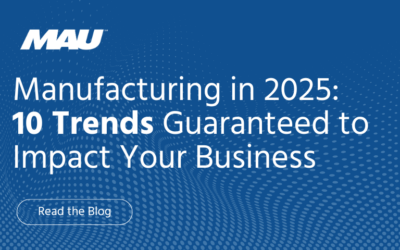I recently met with some old college friends that I hadn’t seen for many years. Besides sharing stories about our families, children, etc., we also talked about work and our careers.
Bouncing from one topic to another, Julio, my “partner in crime” during college, who now works as a recruiter, said something that intrigued us all:
“Well, I fell in love with a ghost.”
We laughed at his comment, but I was instantly intrigued as to what he meant.
“What do you mean, Julio?” I asked.
It was there when my friend started to share his story.
The story
A few months ago after being promoted to a management position, Julio was assigned to recruit the right person for a very specific role. He mentioned that the ideal candidate was one who, besides having the specific skills that job required, had to be responsible, committed, proactive, self-taught, and be flexible in the execution of the company’s projects.
Dozens of interviews took place looking for the perfect candidate.
As a result, Julio struggled to manage his stress because of this unexpected task; the executives were rushing him since operations were interrupted as a result of the absence of the ideal employee.
The morning of a day full of interviews, one of the bosses introduced him to “Sandra,” a tall and charismatic young woman. He suggested that Sandra should be interviewed since she had some of the experience that the job required. Julio, somewhat hesitant, coordinated an interview for that afternoon.
The interview started, and Julio fell in love with Sandra.
Not a romantic type of love, mind you. Instead, it was all about Sandra’s presentation. She was professional, very attentive, and through the conversation, Sandra demonstrated to have the requirements for the position.
After two additional interviews, planned with little to no time, the company extended an offer letter to Sandra, who later accepted.
The first days were “unicorns and rainbows,” but things got complicated when it was time to execute all the promises Sandra sold in her interviews. Sandra began failing to comply with her work schedule, did not complete projects on time, and lacked basic knowledge of the systems that the position required.
As a result, Sandra’s incompetence affected the team morale, the productivity of the rest of the team, and ultimately, the quality of the projects being completed.
The version of Sandra that was sold during that first interview had vanished like a ghost.
Avoid the “Halo” Effect
This phenomenon occurs when we perceive another person in a good light and have trouble viewing them in any other way. For example, some interviewers may feel an instant, positive connection to a candidate, and assume that this interaction will translate into a dedicated, hardworking, innovative hire. In other words, the halo effect may appear as a “love at first sight” connection between the interviewer and the candidate.
According to Is Your Perception Hurting Your Hiring Efforts?, written by Future Force Personnel Services, the halo effect “… occurs when one trait (such as wearing eyeglasses) influences our perception of another trait (intelligence).” This phenomenon occurs more often during interviews, as opposed to romantic dates because they’re short, compact interactions between two parties. While the halo effect can take place during a personal relationship, it will eventually fade as time goes on, and the relationship may either fail or stay intact.
The business world, however, has little tolerance for the halo effect. This is because the wrong hire translates into a loss involving time, money, stress, missed opportunity, and the list goes on. Companies must exhaust all opportunities when interviewing to ensure that the right person is hired the first time around.
It is estimated that the wrong hire can cost a company one to seven times the person’s first annual salary.
These estimates are based on the fact that the hiring process is expensive, especially when employees subject themselves to multiple interviews per candidate, per job. Also, terminating employees is costly and may include; severance pay, increases in unemployment tax, and cost of continued benefits.
In terms of morale, those still employed will suffer due to the fact that fixing hiring mistakes is frustrating and time consuming; moving the focus away from strengthening one’s core business.
This is why putting the right processes and partners in place is critical. From testing and assessments, interview training, to working with a third-party provider, there are measures you can take to avoid the halo effect and spare the headache caused by a bad hire.
For example, staffing providers have spent years developing ways to scope the job market and select the most appropriate candidate to fill an open position. Trained professionals can define the needs of the employer and execute a job search quickly, to place the right candidate, the first time. Staffing and recruiting providers aim for the halo effect, to ensure that the right hiring decisions are made in the best interest of all parties involved.
As the unemployment rate continues to hold at historically low rates, not only capturing talent, but holding onto them through the hiring process is critical. Click here to learn these tips that 5 of our experts recommend to find the right candidate.
{{cta(‘bcc90f1d-6cf5-4899-86a3-4ab4d26a6ca4’)}}
Feel free to contact us today if you have any questions.
{{cta(‘6d93cde2-90ca-4bd5-9ada-a9cab11b8209′,’justifycenter’)}}





